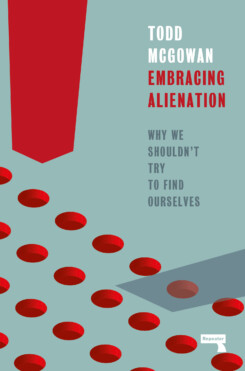£7.99 – £16.99
How Black Was My Valley is a people’s history of the former mining communities of South Wales.
Weaving together the personal with the political, it offers a damning depiction of the hardship and suffering, the tragedy and pain, as a politically abandoned people went from powering the British Empire and the Great Wars, to a broken post-industrial community, lost in time..
It travels with devastating and yet humane insight across the dark shadows of the valley’s history. In doing so, it deals with disaster and resistance; memory and landscapes of despair; the brutal past and the neglected present; hardship and poverty; unemployment and isolation; lack of opportunity and the normalisation of hopelessness; death and suffering; structural violence and everyday subjugation; onto the crises of white male subjectivity and the exponential rise in drug abuse and personal suicide, whose troubling effects can no longer be easily contained within its mountainous walls..
This is not a story of resilience. Instead, readers are taken on a journey into an open wound, whose once silent screams can no longer be ignored.
Born into conditions of poverty in the Rhondda valleys of South Wales, Brad Evans is a political philosopher, critical theorist and writer, whose work specialises on the problem of violence. He is author of over 20 books and edited volumes, including most recently State of Disappearance (with Chantal Meza, McGill-Queens university Press: 2023). He previously led a dedicated columns/series on violence in both the New York Times and the Los Angeles Review of Books. Brad currently serves as Chair of Political Violence and Aesthetics at the University of Bath, United Kingdom, where is he founder and director of the Centre for the Study of Violence.
“A cliche-free, myth-lancing account of a ‘Coal Colony’ discarded by the powers that were after tearing use and relentless abuse. Sometimes lyrical, never romantic he offers analytical passion, acidic candour, some love, deep melancholy, dry mirth, scorn for nostalgia about ‘a past that never really existed’ and an unbreakable grip on truth.”
“How Black Was My Valley is more than a memoir. Each carefully constructed sentence, every beautifully recorded or imagined moment, is placed alongside tragedy’s reality, ensuring that the ‘view from below’, as lived by the people who remain in the grip of economic marginalisation, is heard.”
“Anybody interested in the history of working class resistance, and people’s daily struggles when confronting deep poverty blighting post-industrial communities should read this devastating study”
“Evans’ beautifully crafted words and thoughts are now seared into me forever. Sit with each chapter for a while as its true devastation dawns on you. Thank God these stories are now being told. The boy of the valleys has come home and roared.”
“This heartrending book summons powerful spirits from a great well of suffering. From within the darkest shadows of late Great Britain, both Evans’s prose and Meza’s haunting artwork allow us to glimpse a new vision of folk history from the deep: but it warns that humanity has taken the wrong path, and the light ahead may be too dim to guide us.”
“Brad has gone down the mines and extracted a wealth of history that had been covered in soot and given serious literary attention to a vital yet overlooked aspect of working class and south Welsh life… a passionate, political, and personal retelling of the history of a place most people aim to avoid.”
“A phenomenal, poignant memoir that pulsates with the militant passion and mordant wit of a Welsh Valleys landscape ravaged by white-on-white colonialism and globalisation. Oscillating between acute socio-economic-political observation and lush, almost mystical lyricism, it is a must read for anyone interested in British social history.”
“This is a crucial, driven, and necessary piece of work, fuelled by righteous rage and dismay at how certain social strata (living, loving, hoping human beings) are deemed dispensable once their utility has been wrung dry. If you finish this book without a sense of furious lament, then look to the carbonisation of your soul.”




